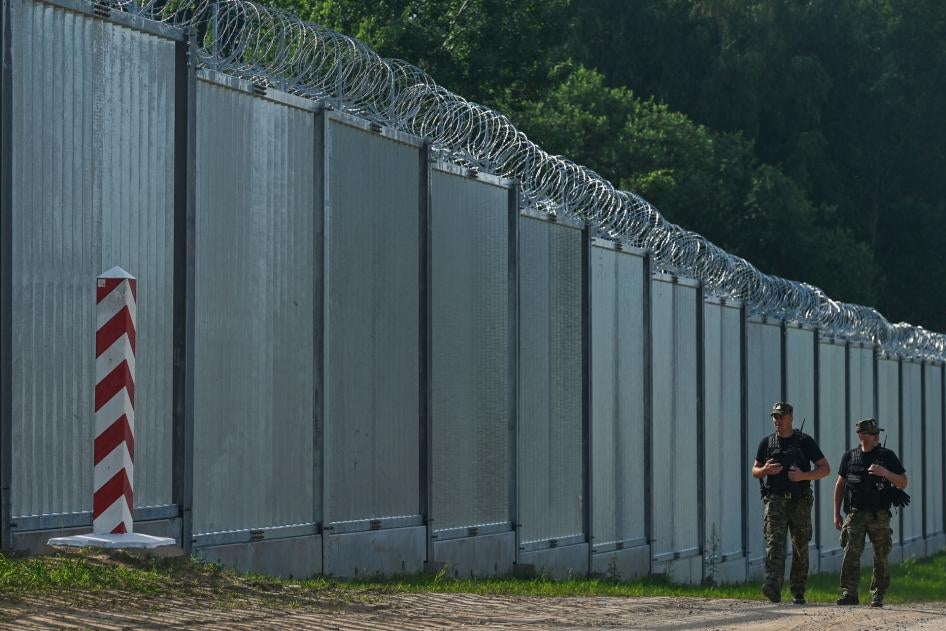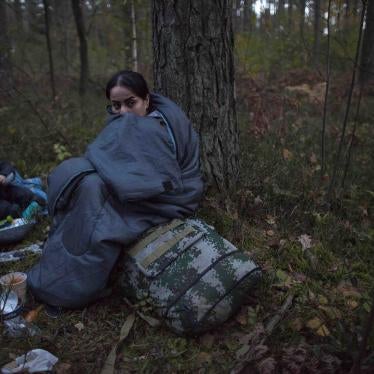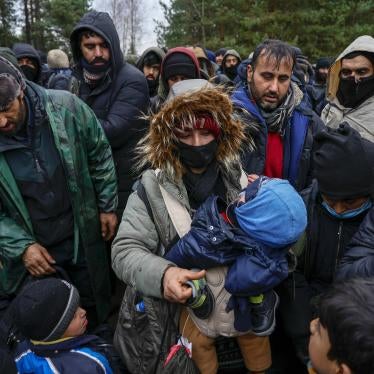Poland ended its state of emergency on Friday, reopening a strip of land parallel to its border with Belarus to outsiders. This “exclusionary zone,” created 10 months ago, blocked aid groups, media, and civil society groups from seeing what happened in this stretch of the border, where migrants and asylum seekers often attempted to cross into the European Union. The state of emergency also made it a crime to help people stranded in the forest.
While the end of the state of emergency is a positive development, the humanitarian crisis on the border continues. Poland’s authorities should act to protect the rights of these migrants and asylum seekers. Instead, restrictions to entry remain in the area 200 meters from the Belarus border, and the construction of a 187 kilometer-long wall along this border is nearly complete.
Yet the numbers of migrants and asylum seekers arriving in Belarus continue to rise, and there is little reason to believe the wall is going to stop people fleeing war, persecution, or other threats to reach the EU.
In August 2021, Belarus’ President Alexander Lukashenko, reacting to EU sanctions on Belarus, encouraged potential migrants to travel to Belarus and then seek to cross the EU’s external border. Since then, thousands of migrants and asylum seekers, including from Syria, Iraq, Yemen, and Afghanistan, have traveled to the Poland-Belarus border. However, many have been denied the opportunity to seek asylum in the EU. In violation of international law, Polish border guards have engaged in summary pushbacks, sometimes violently. Consequently, thousands of people ended up trapped in horrific conditions in the border area between Poland and Belarus, suffering abuse and human rights violations, including rape, beatings, theft, extortion, and inhuman treatment at the hands of Belarusian border guards and other security forces.
In stark contrast, at the Ukraine-Poland border, over 2 million Ukrainians fleeing the war have rightly been welcomed with dignity and open arms.
Access to the Polish asylum procedure should depend on claims to international protection, not skin color, religion, or nationality. Authorities should ensure no one seeking to enter the country is subject to abuse or violations of their rights, and everyone who wishes to apply for asylum is allowed to, in a fair procedure and without discrimination.










